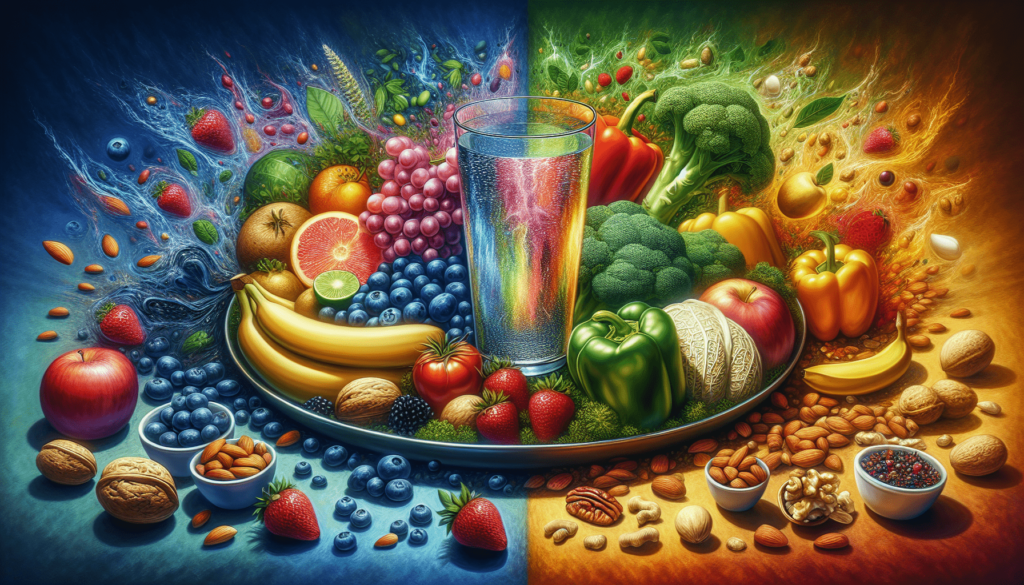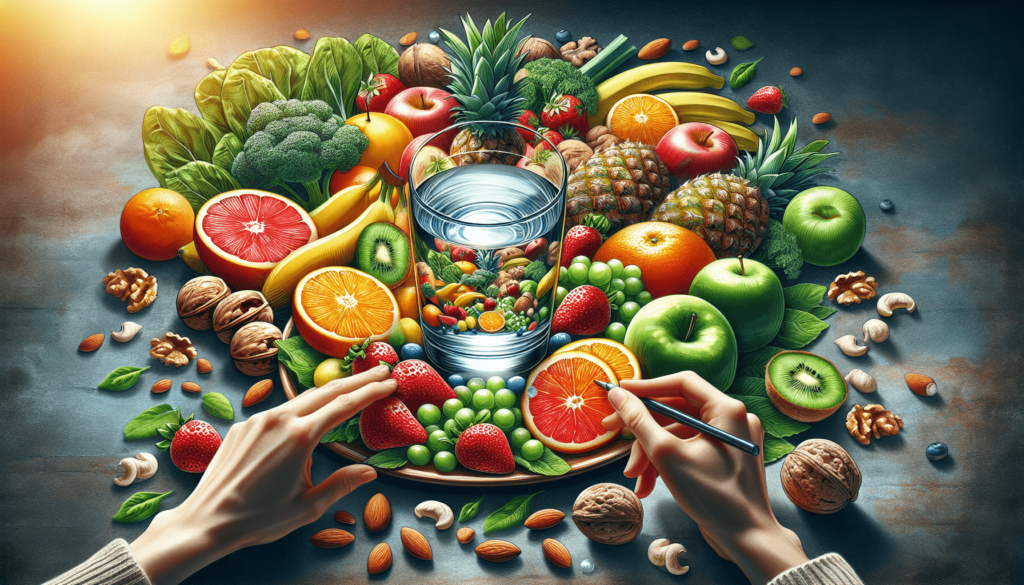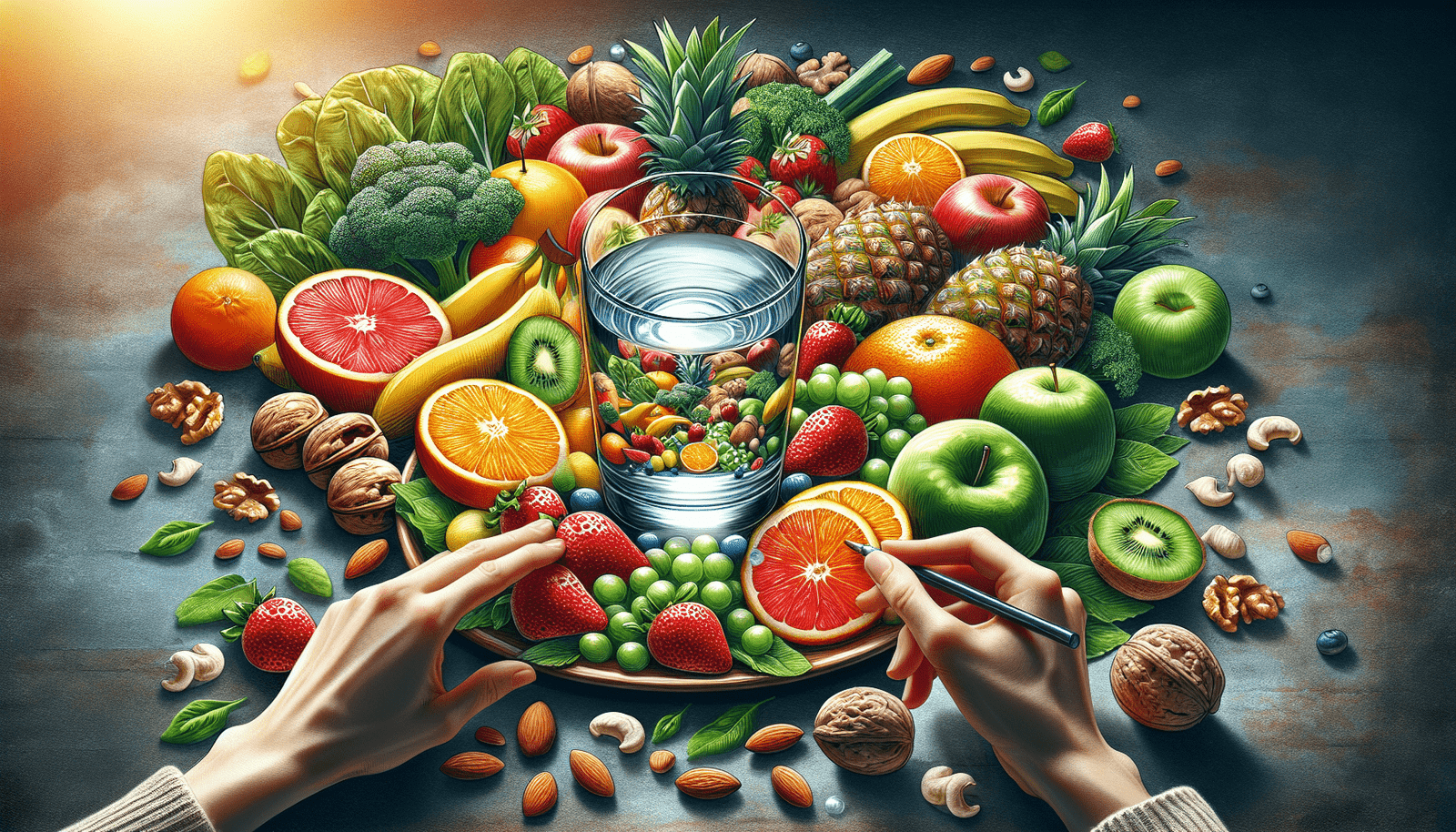Welcome to an article all about zapping fatigue with nutrient-rich foods! By incorporating a variety of nutrient-dense foods into your diet, you can combat feelings of exhaustion and increase your energy levels. From leafy greens packed with iron to antioxidant-rich berries, these foods not only taste great but also provide your body with the essential nutrients it needs to stay energized throughout the day. Say goodbye to that mid-afternoon slump and hello to sustained energy with these delicious and nutritious foods.
Zapping Fatigue With Nutrient-Rich Foods
Do you often find yourself feeling tired and lacking energy throughout the day? Your diet could be playing a significant role in your energy levels. By incorporating nutrient-rich foods into your meals, you can combat fatigue and boost your energy levels naturally. In this article, we will explore the connection between food and energy, and provide you with a list of nutrient-rich foods that can help zap fatigue.
The Connection Between Food and Energy
Have you ever noticed how certain foods can leave you feeling energized and alert, while others can make you feel sluggish and tired? The foods you eat play a crucial role in determining your energy levels. Nutrient-rich foods provide your body with the essential vitamins, minerals, and nutrients it needs to function optimally.
Understanding Macronutrients and Micronutrients
Before we delve into the list of nutrient-rich foods, let’s first understand the difference between macronutrients and micronutrients. Macronutrients are the nutrients that provide the body with energy, including carbohydrates, proteins, and fats. Micronutrients, on the other hand, are essential vitamins and minerals that are required in smaller amounts for various bodily functions.

Carbohydrates for Quick Energy
Carbohydrates are your body’s primary source of energy. They are broken down into glucose, which is used by your cells as fuel. Opt for complex carbohydrates such as whole grains, fruits, and vegetables, which provide a steady release of energy throughout the day, unlike simple sugars that can cause energy crashes.
Proteins for Sustained Energy
Proteins are essential for building and repairing tissues in the body. They also play a crucial role in providing sustained energy. Include lean protein sources such as chicken, fish, tofu, and legumes in your meals to keep your energy levels stable and prevent fatigue.

Fats for Brain Health and Energy
Healthy fats are crucial for brain health and energy production. Omega-3 fatty acids, found in fatty fish, nuts, and seeds, are especially beneficial for cognitive function and overall energy levels. Incorporate sources of healthy fats into your diet to support your brain and boost your energy.
Top Nutrient-Rich Foods to Combat Fatigue
Now that you understand the importance of macronutrients and micronutrients in combating fatigue, let’s explore a list of nutrient-rich foods that can help boost your energy levels and zap fatigue:
| Nutrient-Rich Foods | Benefits |
|---|---|
| Leafy Greens (Spinach, Kale) | Packed with iron and magnesium, which are essential for energy production |
| Berries (Blueberries, Strawberries) | Rich in antioxidants that help fight inflammation and boost energy levels |
| Nuts and Seeds (Almonds, Chia Seeds) | Excellent sources of healthy fats and proteins for sustained energy |
| Quinoa | High in protein and fiber, providing a steady release of energy |
| Salmon | Rich in omega-3 fatty acids for brain health and overall energy |
Incorporating Nutrient-Rich Foods Into Your Diet
Now that you have a list of nutrient-rich foods to combat fatigue, it’s essential to incorporate them into your diet regularly. Here are some tips on how to include these foods in your meals:
- Start your day with a nutrient-rich breakfast, such as a smoothie with leafy greens, berries, and chia seeds.
- Snack on nuts and seeds throughout the day to keep your energy levels stable.
- Include a serving of lean protein, such as salmon or tofu, in your lunch and dinner meals.
- Replace refined grains with whole grains like quinoa and brown rice for a steady release of energy.
By making small changes to your diet and incorporating more nutrient-rich foods, you can zap fatigue and boost your energy levels naturally. Remember to listen to your body and make adjustments based on how you feel.
The Importance of Hydration for Energy
In addition to eating nutrient-rich foods, staying hydrated is crucial for maintaining energy levels. Dehydration can lead to fatigue and decreased cognitive function. Aim to drink at least eight glasses of water per day, and more if you are active or in hot weather. You can also incorporate hydrating foods such as cucumbers, watermelon, and citrus fruits into your diet to help meet your fluid needs.
Conclusion
In conclusion, the foods you eat play a significant role in determining your energy levels. By incorporating nutrient-rich foods such as leafy greens, berries, nuts and seeds, and lean proteins into your diet, you can zap fatigue and boost your energy levels naturally. Remember to listen to your body, stay hydrated, and make small changes to your diet to support your overall energy and well-being. Zapping fatigue with nutrient-rich foods is a simple and effective way to improve your energy levels and feel your best every day.

